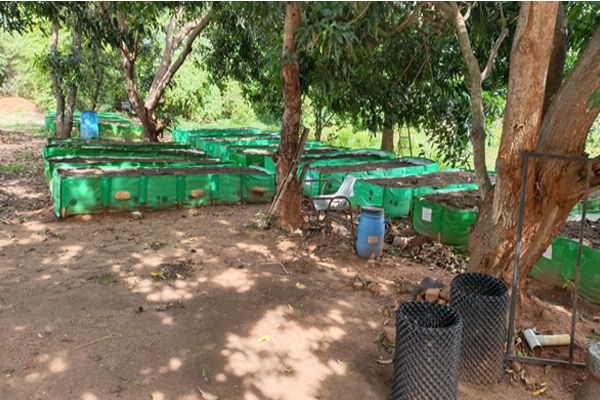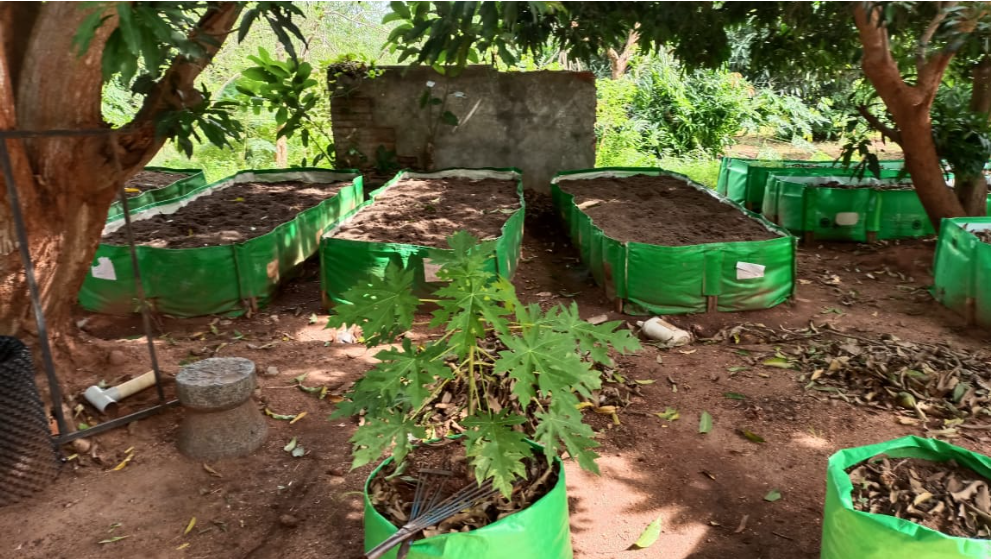Gratitude Farm
Gratitude Farms is dedicated to the Gratitude Vermicompost Project, which focuses on vermicomposting as a sustainable waste management and organic fertiliser production method. The project has set up 24 vermicompost production units, comprising specialised bags, under a tree shed. However, like any new endeavour, it faced several challenges during
its initial stages. Fortunately, with valuable insights and suggestions provided by the local community and experts, these challenges were successfully overcome. One of the key factors in the project’s success was the implementation of effective methods to accelerate the decomposition process and enhance vermicomposting efficiency. Various raw materials, directly sourced from the field, were utilized in the vermicompost production. These materials included leaves, rice straw, banana waste, and other organic matter. By utilizing locally available resources, the project not only reduced waste but also optimized the nutrient content of the vermicompost. The success of the Gratitude Vermicompost Project can be attributed to the collective efforts of all the stakeholders involved. The dedication and hard work of the project team, local community members, and experts led to positive outcomes. Through their collaboration, approximately 1.1 tonnes of high-quality vermicompost was produced, providing a valuable resource for organic farming and soil enrichment. The project’s achievements serve as a testament to the effectiveness of vermicomposting as a sustainable waste management solution. By converting organic waste into nutrient-rich compost, the project has not only reduced the environmental impact but also promoted the use of organic fertilizers. The utilization of locally available raw materials further reinforces the project’s commitment to sustainability and resource efficiency. Looking ahead, the Gratitude Vermicompost Project is poised to achieve even more significant harvests in the future. The lessons learned and experiences gained during the initial stages will serve as a foundation for future improvements and expansion. With the continued support and engagement of the community and experts, the project has the potential to make a substantial impact on waste management, soil health, and sustainable agriculture in the region.


